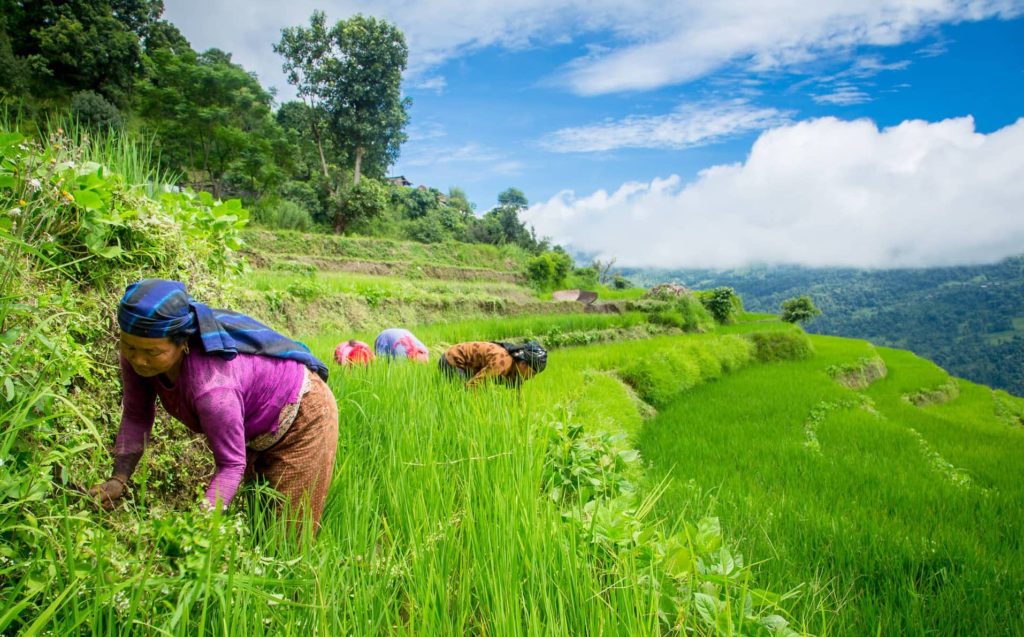Small-scale farmers, and the resources they manage, provide food and incomes across value chains all over the world. They are fundamental to the livelihoods, health and nutrition of billions of people. They are also essential for improving agricultural biodiversity, food-system stability and adaptability to climate change. Integrating the perspective of agrobiodiversity management has great potential to enhance food and nutrition security while reducing risks of crop loss or failure due to increased climate uncertainties. Our new Expert Group will draw on and contribute to ongoing policy processes in Nepal to strengthen collaboration, and raise awareness, surrounding the critical links between small-scale farmers, agricultural biodiversity and achieving the 2030 Agenda.
According to the Food and Agricultural Organization of the United Nations (FAO), inadequate institutional and policy support in the face of competing pressures result in the erosion of agricultural biodiversity and the degradation of natural resources. It has also led to a severe decline in agricultural investment and the displacement of small-scale farmers, despite their central role in helping us all achieve the 2030 Agenda. Climate change and extreme weather events will continue to challenge agriculture and small-scale farmers in Nepal. The country is highly vulnerable to storms, floods, landslides, debris flows, droughts and soil erosion. These natural disasters often affect the food supplies and nutritional security of vulnerable households as well as their livelihoods.
Empowering local communities and applying small-scale farmers’ knowledge can generate sustainable policies and practices that are more adaptable to the changing climate. Local actors’ participation in policymaking and implementation is critical for creating sustainable food systems and protecting biodiversity. However, many policymakers driving national and international processes do not emphasize the needs and capacities of small-scale farmers and local communities, or they lack the means for doing so. This Expert Group – led by Oxfam Novib and the Local Initiatives for Biodiversity, Research and Development (Li-Bird) – will ensure local actors participate in policymaking. The group will focus on small-scale farmers as they represent the majority of the Nepalese workforce and are particularly vulnerable to biodiversity loss and the degradation of ecosystem services.
Nepal has made remarkable progress over the last 20 years, despite a decade-long conflict, trade disruption at the country’s southern border, and two major earthquakes. However, Nepal is still the third poorest country in South Asia, with nearly one-fourth of the population facing food insecurity and living below the poverty line. All stakeholders can do more by recognizing the importance of enhancing agricultural biodiversity and integrating small-scale farmers’ capacities and contributions. The Government of Nepal has recently implemented a multi-sectoral nutrition plan to improve peoples’ nutritional status and to achieve the Sustainable Development Goals. This is an opportunity for our Expert Group to create and support a platform for dialogue, partnerships and collaborations that aims to explore better synergies for small-scale farming, agrobiodiversity, health, nutrition and climate resilience. The group will increase awareness of and contribute to policy interlinkages that support small-scale producers and the resources they manage, increase smallholder producers’ capacity to engage with policymakers and raise public awareness and concern about these essential producers and agricultural biodiversity.
